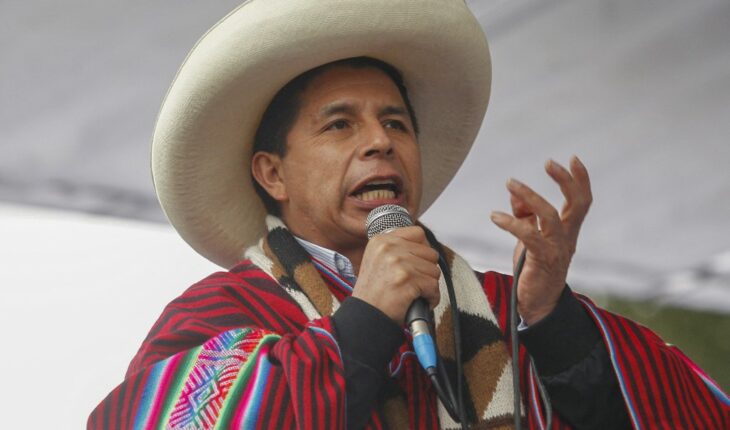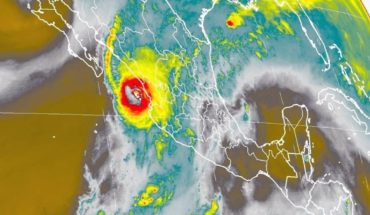The ousted former president of Peru, Pedro Castillo, will remain detained until June 2024 to be investigated for his coup attempt, while protests calling for the closure of Congress and the advance of elections have already left at least 15 dead.
The Regional Health Directorate reported the death of seven people after clashes between protesters and the military in Ayacucho, in the south of the country. According to the Ombudsman’s Office, at least two of the deaths occurred at a protest at the city’s airport.
Thus, the death toll from these protests rises to 15 people, just on the day that a judge granted a request from the prosecution to keep Castillo in preventive detention for 18 months and investigate him for rebellion and conspiracy, after a failed self-coup d’état on September 7.
The magistrate considered that there is “danger of flight” of the former president, who tried to take refuge in the Mexican embassy in Lima after the frustrated self-coup.
Castillo, held in a police prison east of Lima since that date, will remain in jail until at least June 2024.
“We already knew what was coming … We have not been in the audience because we were not going to be part of this carnival,” Ronald Atencio, Castillo’s lawyer, told reporters. The defense will appeal.
The former president, a rural teacher of the left and humble origin, intended to close Parliament, intervene in public powers and govern by decree.
He justified his decision on the grounds that the opposition did not allow him to carry out his work and that he was subjected to racist treatment.
He found no institutional backing and his cabinet resigned in rejection of the failed attempt to break the democratic order.
The former president was arrested in “flagrante delicto” when he tried to reach the Mexican embassy to request asylum. Against him there is also a constitutional complaint from the prosecutor’s office for corruption.
Find out: Government of Peru demands AMLO and Ebrard expressions on political asylum to Pedro Castillo
Deaths and clashes
The strongest protests, with thousands of people marching in the streets, occur in the south, where five airports remain closed (Andahuaylas, Arequipa, Puno, Cuzco and Ayacucho).
They ask for the freedom of Castillo, the resignation of his constitutional successor, former Vice President Dina Boluarte, the closure of Parliament and general elections now.
In the face of the protests, the Boluarte government declared a 30-day state of emergency on Wednesday, allowing the Armed Forces to participate in internal security.
“We demand that the Armed Forces immediately cease the use of firearms and tear gas bombs launched from helicopters,” the Ombudsman’s Office said after the deaths in Ayacucho.
“We express our serious concern over the increase in violence in Peru and deeply regret the deaths of 15 people,” the mission in the country of the UN High Commissioner for Human Rights said on Twitter.
The Ombudsman’s Office also reported 340 injured so far, according to the Police, almost half are from his institution.
“We mourn the cries of the mothers in Ayacucho (…) In a sad day of violence, we once again mourn the death of Peruvians. My deepest condolences to the bereaved. I reiterate my invocation for peace,” President Boluarte said on Twitter.
More than a hundred routes are blocked. The train to the tourist Machu Picchu is suspended and there are hundreds of tourists stranded.
In Lima, dozens of protesters are still camped out around a police prison where Castillo is being held, calling for his release.
“The people want everyone to leave, Dina Boluarte and the congressmen, we want a restoration for Peru. We are going to fight until the last, Professor Castillo has done nothing wrong,” said Rolando Arana, a 38-year-old protester who came to the place from Huancavelica (south).
Castillo’s opponents say part of his support comes from Movadef, the political arm of the Shining Path, the Maoist guerrilla group that wreaked havoc in Peru in the ’80s and ’90s. They call them “terrorists.”
“From day one that (Castillo) assumed the presidency and moreover, in the (presidential) campaign, we were already terrorists, we were ‘terrucos’. They didn’t let him govern, we were thieves, we were corrupt,” recalled Vilma Vásquez, niece of the former president, outside the prison.
“We’re all leaving”
This Thursday, during a ceremony at the Air Force, Boluarte urged Congress to approve the advance of the general elections from 2026 to 2023. “Here we all go, Executive and Legislative,” he said.
Parliament yesterday began the debate to that end, which requires a constitutional reform.
Meanwhile, protesters also gathered around the central Plaza San Martin de Lima, historic epicenter of the protests. Some pickets in downtown Lima were dispersed with tear gas.
“This (Castillo prison) gives a glimpse of our history of racism and classism against indigenous peoples, against deep Peru,” said Professor Estefania Rivera, 28, a native of Puno, after learning of the decision against Castillo.
“Justice has to be the same for everyone, but if you get 18 months (Castillo), that’s fine. I’m not in favor of Castillo or Boluarte, I’m here for a better Peru,” said Jorge Sandoval, a 26-year-old laborer.
The situation has also caused diplomatic problems for Peru, which on Thursday called its ambassadors to Argentina, Bolivia, Colombia and Mexico for consultations in rejection of their decision to support Castillo.
What we do at Animal Político requires professional journalists, teamwork, dialogue with readers and something very important: independence. You can help us keep going. Be part of the team.
Subscribe to Animal Político, receive benefits and support free journalism#YoSoyAnimal





